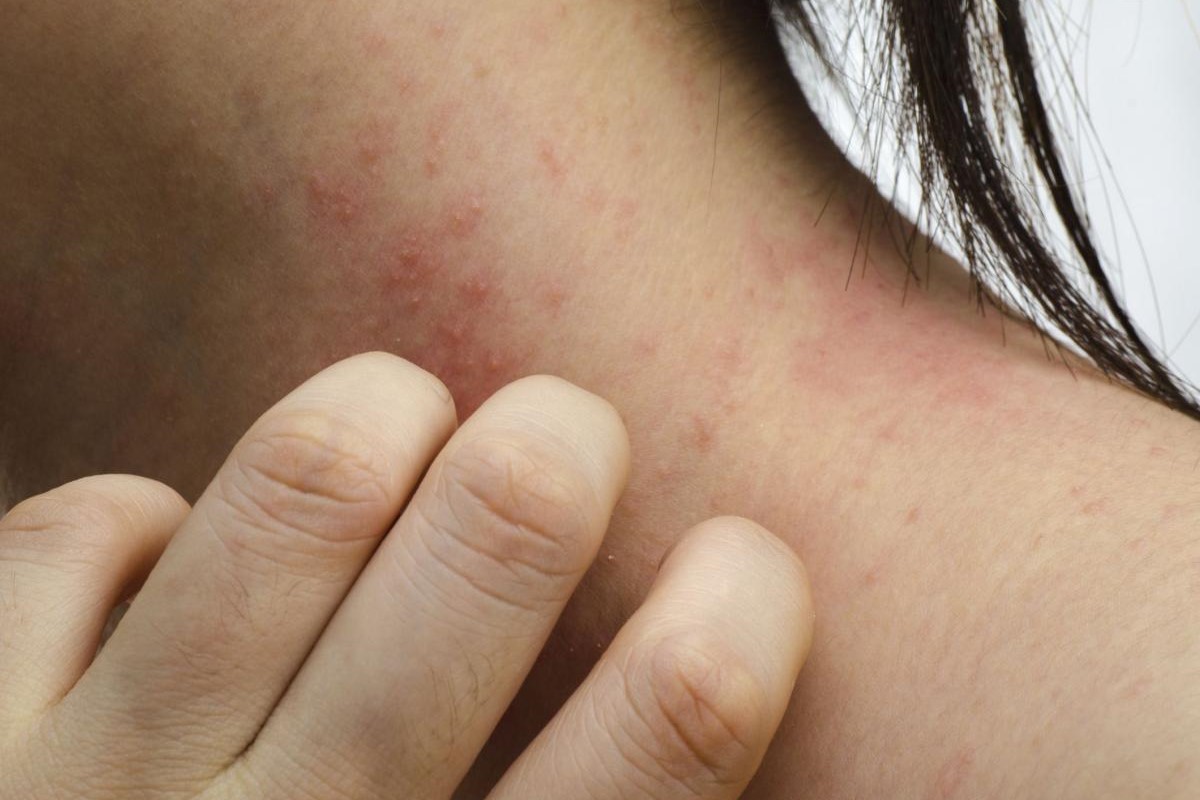
Eczema: how to recognise and treat it
Eczema is an inflammatory manifestation of the skin characterised by redness and crusty scaling and a rather important itchy component
Itching is the most annoying symptom of eczema and can occur with different intensity (acute, sub-acute, chronic) depending on the underlying disease.
In itself, eczema is not a serious condition, but it can create discomfort in both the social and occupational spheres.
Types of eczema
Eczema or dermatitis can be of different types:
- atopic dermatitis: affects children from 0 to 10 years of age and is probably linked to a genetic predisposition to develop allergies with itchy inflammatory areas typically located in the hollow of the knees and elbows. Atopic dermatitis may show a reduction in symptoms (itching and dry skin) in 80% of cases at puberty, but may also persist into adulthood with a phase of flare-ups or blurred or absent disease;
- the irritative forms: these are due, for example, to excessive hand washing or the use of chemicals or solvents that can cause our hands to lose the so-called hydrolipid film, which acts as a protective barrier;
- allergic contact dermatitis: in allergic patients, areas of skin inflammation are created when they come into contact with a certain substance.
Eczema in itself is therefore not a problem of great clinical relevance, but it is strongly limiting for the patient because the excessive itching leads him to have major problems in the social sphere, at work, and in the quality of sleep, which is why it must be managed with the utmost care.
How eczema is diagnosed
Usually, to diagnose eczema, a clinical test by a dermatologist specialist is sufficient, with an evaluation of the patient’s medical history.
In case of further investigation, useful investigations may be
- allergy tests (e.g. patch tests, rast tests or skin prick tests);
- skin biopsy, the latter useful for assessing the presence or absence of more serious pathologies’.
How eczema is treated
Eczema, although very different, almost all have the same therapeutic approach.
They range from the daily use of emollient creams to reconstitute the hydrolipid film and epidermal barrier, which is our natural defence against eczema, to topical cortisone-based products when cream alone cannot solve the problem.
These products must be clearly chosen according to the patient’s problems and characteristics (there are low, medium and high potency cortisone products).
Other topicals are calcineurin inhibitors (cyclosporine and tacrolimus), which are nowadays used very frequently in the event of failure of cortisone therapy.
There are also oral therapies that are used in particularly extensive forms of eczema, including cyclosporine, which achieves excellent results on major eczematous forms.
On the front of atopic dermatitis therapies, the so-called biological drugs, already used in psoriasis therapy (interleukin 4 and interleukin 13 inhibitors), have made their entrance in the last few years and will allow, in the not too distant future, an almost total control of the disease.
A further natural therapy for sufferers of atopic dermatitis is balneo-thalassotherapy, i.e. seawater combined with exposure to the sun, which can manage the problem very well without the use of any drugs in combination.
Read Also
Emergency Live Even More…Live: Download The New Free App Of Your Newspaper For IOS And Android
Eczema Or Cold Dermatitis: Here’s What To Do
Dermatitis: The Different Types And How To Distinguish Them
Contact Dermatitis: Patient Treatment
Stress Dermatitis: Causes, Symptoms And Remedies
Infectious Cellulitis: What Is It? Diagnosis And Treatment
Contact Dermatitis: Causes And Symptoms
Skin Diseases: How To Treat Psoriasis?
Pityriasis Alba: What It Is, How It Manifests Itself And What Is The Treatment
Atopic Dermatitis: Treatment And Cure
Psoriasis, A Disease That Affects The Mind As Well As The Skin
Allergic Contact Dermatitis And Atopic Dermatitis: The Differences
Adverse Drug Reactions: What They Are And How To Manage Adverse Effects
Symptoms And Remedies Of Allergic Rhinitis
Allergic Conjunctivitis: Causes, Symptoms And Prevention
What Is And How To Read The Allergy Patch Test
Psoriasis, An Ageless Skin Disease
Clinical Manifestations Of Atopic Dermatitis
Dermatomyositis: What It Is And How To Treat It
Atopic Dermatitis: Symptoms And Diagnosis


